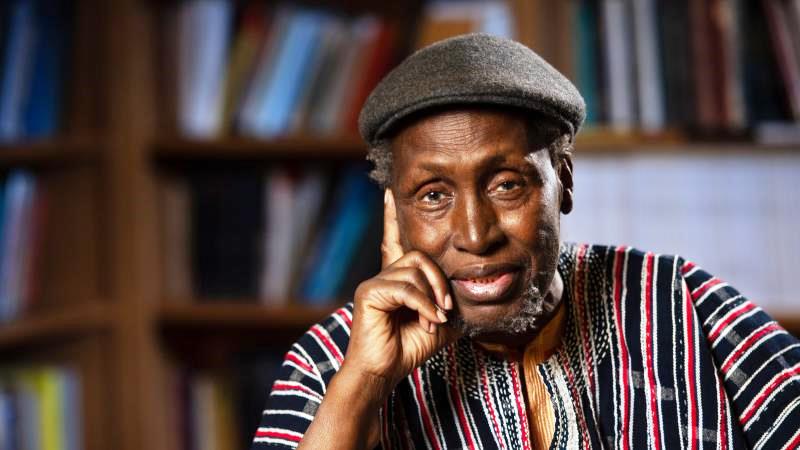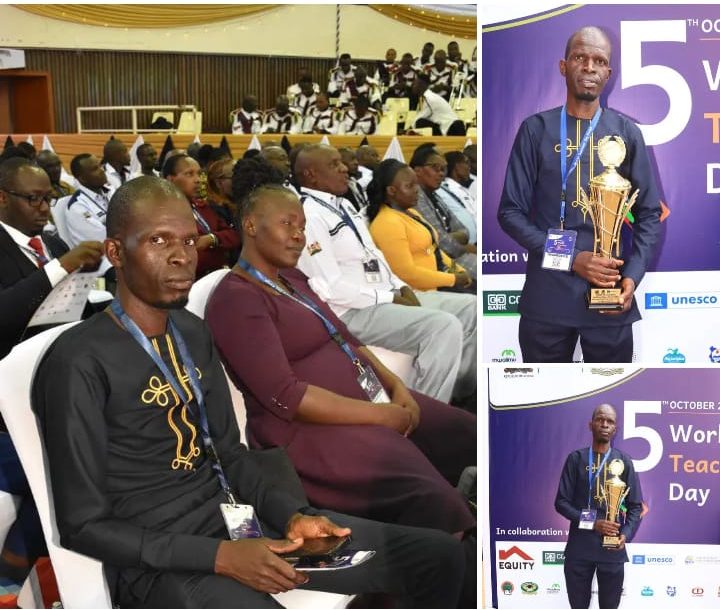There are writers who entertain, writers who inform, and then there are writers who transform. For me, Ngũgĩ wa Thiong’o is the latter – an intellectual giant, a fearless voice, and a literary warrior whose works didn’t just shape my love for Literature – they awakened my very soul. To say Ngũgĩ influenced me would be an understatement.
He liberated me. His books didn’t merely tell stories; they unchained my mind and taught me that Literature could be a form of resistance, a vehicle for truth, and a compass pointing back to identity. Today, I celebrate you for the impact you have had on me, my life and career.
I was first introduced to Ngũgĩ wa Thiong’o through Weep Not, Child. At the time, I was a student searching for meaning in a postcolonial world, drawn to books but unsure what to make of stories that felt so distant from my own reality. Then came Ngũgĩ – raw, honest, and unapologetically African.
His characters were people I knew: villagers, mothers, freedom fighters, dreamers, and broken men trying to rise. For the first time, I saw my community in a novel – not as a backdrop to foreign adventures, but as the central force of the narrative. It was as though a door had opened into a world that had always existed but had been silenced by colonial storytelling.
ALSO READ:
US visa freeze leaves thousands of Kenyan students in uncertainty
Reading The River Between further deepened my connection. Ngũgĩ’s exploration of cultural conflict, identity, and the pressures of Christian colonial influence resonated deeply. The struggle between tradition and modernity wasn’t just an abstract theme—it mirrored the reality around me, the subtle wars fought daily in language, values, education, and even names. Ngũgĩ gave a name to that struggle and a face to the people caught in its tide. He did not judge; he illuminated.
But it was Petals of Blood that truly shattered the walls of my literary imagination. It was bold, angry, and complex – a searing critique of post-independence Kenya and the betrayal of the common man by the elite. Here was a novel that dared to question power that exposed corruption and neocolonial rot with unflinching clarity. Through this book, I realized that Literature was not just about aesthetics or emotional journeys – it was about speaking truth to power. Ngũgĩ’s pen was a spear, and he wielded it with precision.
Then came Decolonising the Mind – a manifesto, a revolution in print. This was no longer fiction; this was Ngũgĩ the philosopher, the teacher, the activist. His argument was simple but profound: language is not neutral. Language carries culture, memory, and identity. The decision to write in Gikuyu was not just personal; it was political.
ALSO READ:
Relief as promoted teachers set to receive salary upgrades after legislative approval
It was a declaration that African languages matter, that African experiences deserve to be articulated in their mother tongues. Reading this work forced me to confront the colonial residue in my own thinking. I began to ask hard questions: Why had I internalized the idea that English was superior? Why did I equate fluency in English with intelligence? Why the stories from my own heritage were considered “informal,” while Western tales were “literary”?
Ngũgĩ challenged me to re-evaluate everything I thought I knew. His courage to defy the norms of a colonial education system, even at great personal cost – including imprisonment – left a lasting impression on me. He didn’t just write about liberation; he lived it. His life and works taught me that Literature is not an escape from reality but a tool to change it.
Because of Ngũgĩ wa Thiong’o, I chose to study Literature – not just as a subject, but as a calling. I wanted to explore stories that mattered, stories that reclaimed African voices and celebrated African truths. I wanted to teach others that our narratives are rich, powerful, and worthy of being read and remembered.
In every classroom I stand before, I try to carry a piece of Ngũgĩ’s spirit with me. I encourage my students to read not just to pass exams, but to understand the world, question injustice, and rediscover themselves.
ALSO READ:
Staff supervision strategies school administrators must embrace to succeed
Ngũgĩ’s influence extends beyond the page. He has inspired generations of African writers to embrace their heritage, to write in their languages, and to use their art as a force for social change. He has shown us that decolonization is not just a political process but a psychological and cultural one. And most importantly, he has given us the courage to tell our own stories, in our own voices, without apology.
Today, I honour Ngũgĩ wa Thiong’o not just as a literary icon, but as a personal mentor from afar. His words shaped the way I read, write, and think. His books offered more than knowledge – they offered freedom. Freedom from inferiority complexes, from borrowed narratives, from self-doubt. They gave me permission to believe that my story mattered.
As I continue on this journey as a reader, a writer, and a teacher, I carry with me the lessons Ngũgĩ has taught. I pass them on to the next generation, hoping they too will find in his words what I found: courage, clarity, and a profound sense of belonging.
Thank you, Ngũgĩ wa Thiong’o. You are the reason I read. You are the reason I teach. You are the reason I believe in the power of Literature to liberate.
B y Kamomonti wa Kiambati
Kamomonti teaches English and Literature in Gatundu North Sub County
You can also follow our social media pages on Twitter: Education News KE and Facebook: Education News Newspaper for timely updates.
>>> Click here to stay up-to-date with trending regional stories
>>> Click here to read more informed opinions on the country’s education landscape






